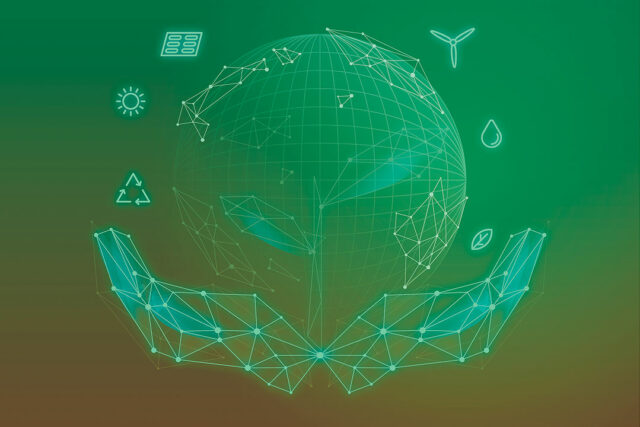
It’s summer. Temperatures are rising, and now that most mobility restrictions have been lifted, many children can be seen playing outdoors. One sunny, sweltering afternoon, however, the sky turned gray, and a downpour ensued.
This might seem erratic to many of us, but the Department of Science and Technology’s Philippine Atmospheric, Geophysical and Astronomical Services Administration (PAGASA), says we should not be surprised. Most of their climate models, they say, suggest that La Niña is likely to continue through the months of March, April, and May, despite the warm and dry season that has started this month.
The combined effects of these weather systems may potentially trigger rains that may cause floods, flash floods, and rain-induced landslides in vulnerable areas. Moreover, the rainfall forecast for the month of March suggests we should expect near to above normal rainfall conditions in most parts of the country.
Climate change is indeed upon us. The complex environmental challenges it triggers affect everyone, especially the most vulnerable, at a far greater level than what was expected before.
The Philippines is one of the countries most vulnerable to the effects of climate change. Tragically, Filipinos still have a low awareness and understanding of the dangers and consequences of climate change.
In a Social Weather Stations (SWS) survey conducted from Oct. 20-23, 2021, respondents were asked what they thought was the main reason preventing the country from addressing climate change. Thirty-four percent said they don’t know, can’t understand the question, were not aware of climate change, or had no answer.
Alarmingly, another 40% responded with an invalid answer.
Yet the same survey found that 89% of Filipinos agree that there are benefits in the integration of digital technologies in the country’s economic activities. Some 82% of Filipinos also agree that the growth of the Philippine economy will be accelerated if the government collaborates with the private sector, and 81% agree that the government should engage the private sector to invest in public infrastructure.
Philippine Business for Environmental Stewardship (PBEST) believes that climate action is one of the areas where the government can collaborate with the private sector. Specifically, the private sector’s initiatives and expertise in digital technologies can help advance our efforts in combatting the effects of climate change.
Planting trees is perhaps the most conventional nature-based solution. It is a relatively inexpensive way of tackling climate change and its environmental side effects. In addition to their natural carbon sink capabilities, trees help prevent soil erosion and provide clean air, shade, and shelter. Forest products such as wood are also essential in the economy’s infrastructure development.
Our forest cover, however, has been on a steady decline. According to the Food and Agriculture Organization (FAO) of the United Nations, the Philippines had a forest area of 12 million hectares in 1960. The World Bank (WB) says this significantly decreased to only 7.19 million hectares in the years that followed. Some 24.1% of the total landmass remains as forest area.
Fortunately, there are some bright, encouraging spots.
There are private sector-led interventions. A good model is the data-backed Liveable Cities Challenge (LCC) Dashboard project of the Philippine Disaster Resilience Foundation (PDRF), and its private sector partners which contains multi-year data on local communities’ basic information such as labor, education, local economy, doing business, mobility and connectivity, health, urban environment, resiliency and emergency response, and safety and security.
This data helps local communities and their governments spot local trends and their connections to enable community stakeholders to make timely and effective decision-making and help determine vulnerabilities and issues that need to be addressed.
Digital technologies are now being harnessed not just to champion environmental stewardship but also in implementing environment, social, and governance (ESG) initiatives. Several companies have linked their tree-planting advocacies to actual trees being planted and monitored. Sites that need reforestation and scaling of tree-related sustainability programs are efficiently identified and prioritized. People can now help fight climate change by using these smart platforms to participate in these programs while availing themselves of the online services through their phones.
The fast transition to online platforms for daily business transactions since the COVID-19 pandemic broke out two years ago has reduced carbon emissions and business interactions to a digital-first attitude, resorting to face-to-face meetings only when very necessary and observing the required safety protocols.
Still, the potential of digital tools and technologies, in terms of advancing climate action and resiliency, remains largely untapped, primarily because of the lack of a general understanding of climate change itself and how digitalization can address it. The government should also lead in its integration into Philippine communities and their infrastructure. Enough government resources must be allocated to build up our national digital infrastructure to a level that is globally competitive.
National and local policies and frameworks should be conducive in enabling the sectors’ ESG-based initiatives and investments that are sure to provide Filipinos with access to financial tools while participating in environmental stewardship programs. The Philippines must now step up its climate risk preparedness investments that would enhance nature-based solutions to climate change. These would also reduce physical risks to the people and the environment.
Climate change has a profound effect on our economic sustainability and resiliency. Having access to reliable digital tools is now considered a basic human need. It is also an indispensable factor to ensure economic continuity and recovery, and a sustainable post-pandemic era.
Engineer Felix M. Vitangcol is a Stratbase ADRi Environment fellow and secretary general of Philippine Business for Environmental Stewardship (PBEST).
For all the latest Business News Click Here
For the latest news and updates, follow us on Google News.
